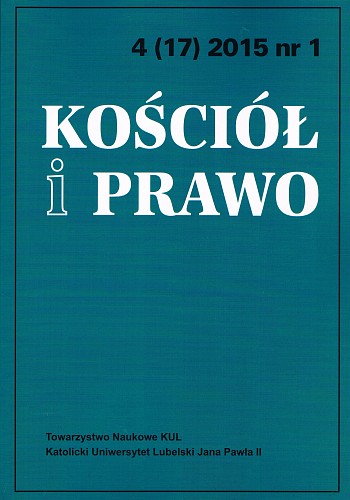Reguły kolizyjne znajdujące zastosowanie w przypadku wystąpienia sprzecznych dekretów poszczególnych (kan. 53)
Conflict-of-law Rules in Use in Case of a Conflict of Singular Decrees (can. 53)
Author(s): Ginter DzierżonSubject(s): Canon Law / Church Law
Published by: Towarzystwo Naukowe KUL & Katolicki Uniwersytet Lubelski Jana Pawła II
Keywords: general norms; individual administrative acts; general decree; interpretation;
Summary/Abstract: The author of the presented article carried out an interpretation of can. 53 which includes two conflict-of-law rules to be used in case of a conflict of singular decrees. According to the analysis, the first rule included in can. 53 CIC remains in close relation to 34th interpretive rule included in Pope Boniface VIII’s “Liber Sextus” which states that “the particular overrides the general”. The main idea behind the functioning of this interpretive rule is the assumption that the more particular the decree is, the more attention is paid by the ecclesiastical power to its formative process, which leads to a more precise expression of a clearly specified situation. The second interpretive rule states that if decrees are equally general or equally particular, the decree later in time repeals the earlier to the extent that the later one is contrary to it. The rule’s “ratio legis” is based on the assumption that the power issuing a later decree is aware of having issued the previous one.
Journal: Kościół i Prawo
- Issue Year: 4/2015
- Issue No: 1
- Page Range: 9-20
- Page Count: 12
- Language: Polish

